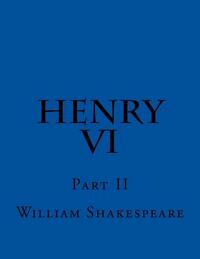You need to sign in or sign up before continuing.
Take a photo of a barcode or cover
adventurous
funny
fast-paced
Plot or Character Driven:
Character
Strong character development:
Complicated
Loveable characters:
Yes
Diverse cast of characters:
No
Flaws of characters a main focus:
Yes
Never really read Shakespeare, so I'm starting chronologicallly. I feared it would be boring or difficult, but it was surprisingly engaging. Also, very witty.
I can't possibly rate Shakespeare, but I did enjoy this one. I had read that Henry VI part 1 was written before part 2 and wasn't as strong, and having read them back to back I concur. I found it difficult to keep track of all the characters, but then again this is the year of reading all of Shakespeare so the pace is quick. Concurrently reading a history book about the Wars of the Roses was meant to help but may have confused me more in the end!
tense
medium-paced
Plot or Character Driven:
Plot
Strong character development:
No
Loveable characters:
No
Diverse cast of characters:
No
Flaws of characters a main focus:
No
It's interesting to see the trilogy format play out in such an old theatrical form. I like this one better than the first part.
I liked part II a bit less than part I of Henry VI but both are enjoyable. This one is all domestic turmoil as the war with France has been placed on hold for the time being. All the crazy Dukes and Earls fighting is entertaining and there are enough deaths of major characters to rival a Shakespearian tragedy. This all adds up to a good play.
For the Henry VI plays, I’m taking a bit of a different approach. I’m going to view the PBS’s The Hollow Crown versions http://www.pbs.org/wnet/gperf/henry-vi-part-1/5955/ of these plays with the understanding that the three parts have been collapsed into two programs. I think the series is done extremely well; the sets and costumes are very detailed and realistic, and the acting is outstanding.
To prepare for the plays, I consulted my Shakespeare App https://itunes.apple.com/us/app/shakespeare/id285035416?mt=8 which gives a really good, in-depth summary of the plays. Also, the plot summaries from IMDB https://www.imdb.com/title/tt3974590/plotsummary?ref_=tt_stry_pl were very helpful.
Henry VI, Part 2
Part 2 really is a whirlwind of chaos where we find Henry’s incompetence in full view and also presents many situations where justice and injustice are practiced.
I like how Shmoop summaries the theme of loyalty: “Are you loyal to a king? To a country? To your relatives? To the law? To justice? To God?” The play grapples with these questions and Shakespeare presents these layered dilemmas in such a way that it’s hard to follow who is loyal to whom. For me, it’s probably because I’m having a hard time remembering all of the characters.
Speaking of the king, who is supposed to be reign becomes more in question. Queen Margaret is frustrated with him and complains Henry is too religious and weak. This aids in the crown may be easy to take - but it’s hard actually because of the opposing forces who claim the crown for themselves.
Quotes:
“The first thing we do, let's kill all the lawyers.”
“For where thou art, there is the world itself,
With every several pleasure in the world,
And where thou art not, desolation.”
“Could I come near your beauty with my nails,
I'd set my ten commandments in your face.”
“How irksome is this music to my heart!
When such strings jar, what hope of harmony?”
“The commons, like an angry hive of bees
That want their leader, scatter up and down
And care not who they sting in his revenge.”
“Thou hast most traitorously corrupted the youth of the realm in erecting a grammar-school; and whereas, before, our forefathers had no other books but the score and the tally, thou hast caused printing to be used; and, contrary to the king, his crown, and dignity, thou hast built a paper-mill. It will be proved to thy face, that thou hast men about thee, that usually talk of a noun, and a verb; and such abominable words, as no Christian ear can endure to hear.”
“Can we outrun the heavens?”
“Forbear to judge, for we are sinners all.
Close up his eyes, and draw the curtain close;
And let us all to meditation.”
“Small things make base men proud.”
To prepare for the plays, I consulted my Shakespeare App https://itunes.apple.com/us/app/shakespeare/id285035416?mt=8 which gives a really good, in-depth summary of the plays. Also, the plot summaries from IMDB https://www.imdb.com/title/tt3974590/plotsummary?ref_=tt_stry_pl were very helpful.
Henry VI, Part 2
Part 2 really is a whirlwind of chaos where we find Henry’s incompetence in full view and also presents many situations where justice and injustice are practiced.
I like how Shmoop summaries the theme of loyalty: “Are you loyal to a king? To a country? To your relatives? To the law? To justice? To God?” The play grapples with these questions and Shakespeare presents these layered dilemmas in such a way that it’s hard to follow who is loyal to whom. For me, it’s probably because I’m having a hard time remembering all of the characters.
Speaking of the king, who is supposed to be reign becomes more in question. Queen Margaret is frustrated with him and complains Henry is too religious and weak. This aids in the crown may be easy to take - but it’s hard actually because of the opposing forces who claim the crown for themselves.
Quotes:
“The first thing we do, let's kill all the lawyers.”
“For where thou art, there is the world itself,
With every several pleasure in the world,
And where thou art not, desolation.”
“Could I come near your beauty with my nails,
I'd set my ten commandments in your face.”
“How irksome is this music to my heart!
When such strings jar, what hope of harmony?”
“The commons, like an angry hive of bees
That want their leader, scatter up and down
And care not who they sting in his revenge.”
“Thou hast most traitorously corrupted the youth of the realm in erecting a grammar-school; and whereas, before, our forefathers had no other books but the score and the tally, thou hast caused printing to be used; and, contrary to the king, his crown, and dignity, thou hast built a paper-mill. It will be proved to thy face, that thou hast men about thee, that usually talk of a noun, and a verb; and such abominable words, as no Christian ear can endure to hear.”
“Can we outrun the heavens?”
“Forbear to judge, for we are sinners all.
Close up his eyes, and draw the curtain close;
And let us all to meditation.”
“Small things make base men proud.”
adventurous
dark
slow-paced
Plot or Character Driven:
Plot
Strong character development:
No
Loveable characters:
No
Diverse cast of characters:
No
Flaws of characters a main focus:
Yes
adventurous
dark
tense
medium-paced
Plot or Character Driven:
N/A
Strong character development:
N/A
Loveable characters:
N/A
Diverse cast of characters:
N/A
Flaws of characters a main focus:
N/A
The Bard throws everything at the wall with this play, and what it lacks in a streamlined plot progression, it more than makes up for in the sheer magnitude of side characters, a layering of conspiracy upon mutinous conspiracy, and even a sprinkling of supernatural intrigue--there's so much "stuff" here that it's surprisingly easy to forget about the literal prophesying demon summoned spontaneously in the second act.
A foreknowledge of at least the key players in the outbreak of the War of the Roses is recommended, as Shakespeare clearly wrote for an audience that was more intimately familiar with the key players (mainly King Henry VI, along with the exploits of his father that precede the first act; Duke Humphrey of Gloucester, not to be confused with Richard of Gloucester who will become the infamous King Richard III; and the Duke of York). That said, the individual intrigues, scandals, and battles are enthralling in their own right. The difficulty is in the detours, which make trying to appreciate the story in its entirety a difficult enterprise. Still, given that this is the middle chapter in a trilogy (though it was likely performed first), maybe comprehensive wholeness was never the goal.
As perhaps Shakespeare's first history play, it a far more ambitious and successful project than either of his two preceding efforts. This kid might be going places.
A foreknowledge of at least the key players in the outbreak of the War of the Roses is recommended, as Shakespeare clearly wrote for an audience that was more intimately familiar with the key players (mainly King Henry VI, along with the exploits of his father that precede the first act; Duke Humphrey of Gloucester, not to be confused with Richard of Gloucester who will become the infamous King Richard III; and the Duke of York). That said, the individual intrigues, scandals, and battles are enthralling in their own right. The difficulty is in the detours, which make trying to appreciate the story in its entirety a difficult enterprise. Still, given that this is the middle chapter in a trilogy (though it was likely performed first), maybe comprehensive wholeness was never the goal.
As perhaps Shakespeare's first history play, it a far more ambitious and successful project than either of his two preceding efforts. This kid might be going places.







